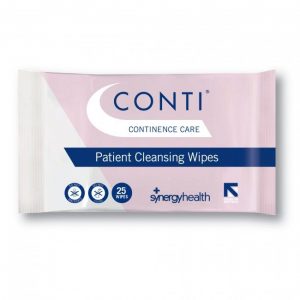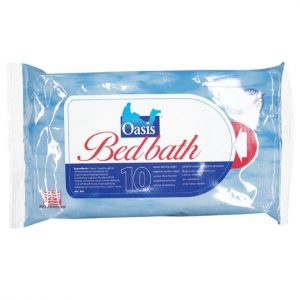A substantial number of residents in Care Homes are likely to have some degree of urinary incontinence or dysfunction.Optimum methods of incontinence management can produce ‘social continence’, alleviating embarrassment and effecting patient dignity. Not washing enough can lead to infections and skin complaints.
For most adults, washing is a personal and private activity so it can be hard to adjust to this change. It is important to beprepared to make washing and bathing as easy as possible. Here are some tips you should follow when washing an elderly resident with incontinence:
Be considerate
Before you wash a senior who is incontinent, it is useful to firstly put yourself in their shoes. Simple tasks that many of us take for granted, such as getting dressed in the morning, can be difficult for seniors. Younger people rarely have difficulty getting in and out of the shower or tub safely, reaching up to wash their hair, discerning which products are intended for certain areas of the body or staying warm during and after bathing. It is easy for seniors to tire and catch chills easily, and particularly for those with Dementia, multi-step processes can be very overwhelming. A good place to start is to tell the individual what is about to happen in the washing process so they are not likely to be alarmed or feel uncomfortable.
Being patient can make all of the difference, as seeming as though you are in a rush can make the individual feel uncomfortable. The senior will be much more relaxed if you focus on speaking in a low, calm tone. Speaking quietly and reminding the person that you only there to help can make the experience much easier and more pleasant for everyone.
Have incontinence supplies nearby and on hand.
The reality of incontinence is its unpredictability. It is important to understand that the person that you are helping to bathe will not be able to control their incontinence. This means that you will need to have incontinence products nearby that can help you to clean up accidents and make the experience as clean and comfortable as possible. When you are washing someone with incontinence, it is also important to wear gloves whilst doing so to help curtail the spread of germs.
You can read our blog on choosing products for incontinent residents for guidance on being prepared.
Make the bathing area as comfortable and warm as possible
Many times when someone needs help bathing they are suffering health issues that make them feel cold much easier. Anyone will be much more conducive to bathing if the bathing area (bathroom) is both comfortable and warm. Turn up the heat, adjust the lighting to comfortable levels, and make sure that there are plenty of towels and even blankets if needed close by.
Consider a Bed Bath Alternative
A bed bath can be a good choice for those who are frail, non-ambulatory or overweight. A senior experiences pain on transfer, a bed bath can be a safer option. This method involves washing someone in the bed, and can prove to be a lot less stressful.
Bed bathing can be done with a basin of water, soap and washcloths, and involves rinsing off the soap. A variation on this method is the towel bath. Here, a person is covered with a large, warm, moist towel containing a no-rinse soap solution, and is washed and massaged through the towel.
Alternatively, you can purchase bed bath wipes. This can provide a comfortable, therapeutic bed bathing solution without the issues associated with soap and water. You can shop the Oasis bed bath solution wipes on our website if you feel these are suitable.
Oasis Bed Bath Wipes
Do not neglect the individual’s skin care needs
Many times the individual with incontinence will need additional skin protection from the potentially damaging effects of incontinence. This is particularly relevant if the individual has frailer skin that is prone to damage. There are a range of products in the market that are specially designed to protect skin from the damage caused by faeces and urine. From specially formulated wipes to moisturizers, you can stock up on products that will help to keep the incontinent person’s skin healthy.
You can find a wide selection of incontinence skin care wipes on our website.

Conti Continence Care Wipes
In addition to being prepared before bathing a resident, you should also ensure that the following hygiene standards are complied with in your home:
- Every resident with urinary symptoms or incontinence should have a holistic assessment
- Individuals should have a full-body wash, for example, a bath, shower or bed bath wash at least twice a week
- The bottom and genitals should be washed every day to prevent infection.Urinary tract infectionsare more common in older people
- A Clinical Nurse Specialist for the elderly should be employed to visit all nursing and residential homes regularly to review patient management and staff education programmes.
- The face should be washed every day to keep the skin clear
- Teeth or dentures need to be cleaned twice a day to maintain oral health
You can visit our blog for information on how you can provide person-centred continence care in your nursing home.
